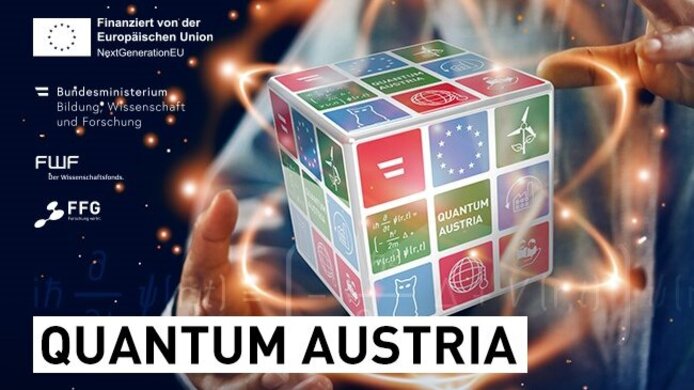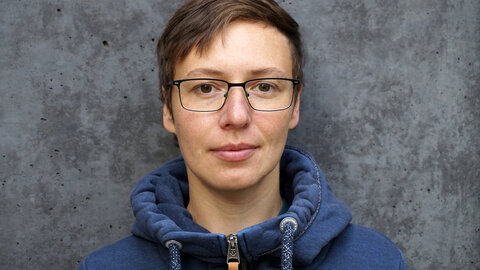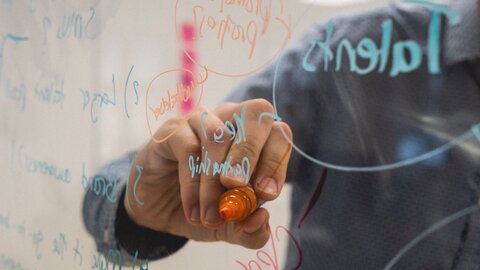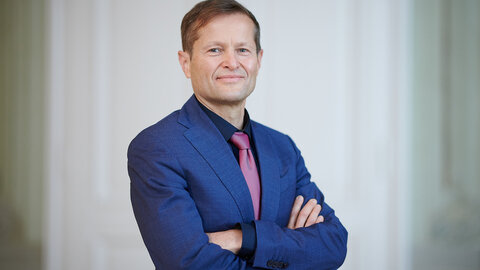First Quantum Austria Research Projects Approved

Implementation of the Quantum Austria Funding Initiative is moving ahead rapidly. The FFG and FWF have just approved the first research projects funded by the initiative in the promising field of quantum research and quantum technology. A total of €107 million in funding from the Recovery and Resilience Facility NextGenerationEU will be made available until 2026. After the first round of proposals, the Federal Ministry of Education, Science and Research selected the first project for funding from the key research area “Updating the High-Performance Computing Infrastructure.” With this project, €20 million are being invested in improving national high-performance computing (HPC) capacities, which will bring Austria up to the projected “EU Next Level.” Further proposals are currently being reviewed and will soon be launched, building a strong research and development basis. To date, the FWF has been able to approve ten research projects with a funding volume of €3.1 million at Austrian universities. A number of additional proposals are currently under international review, and the FWF will be selecting further projects for funding in the near future.
“The Quantum Austria Funding Initiative increases the chances of success for Austria's researchers in the promising field of quantum research. The high level of interest in the programme and the initial approvals highlight our potential in this area, which we are expanding even further with the help of the resources from the crisis fund. We are not only investing in our most talented researchers, but also in the infrastructure they need to strengthen Austria as a knowledge and innovation location,” says Federal Minister of Education, Science and Research Martin Polaschek on the granting of the first Quantum Austria funding.
“The FFG is taking on the important role of supporting applied research for the Quantum Austria Funding Initiative. By funding important infrastructure and R&D projects in cooperation with innovative companies and research facilities, we will be able to decisively advance quantum technology in this country over the next few years,” according to FFG Managing Directors Henrietta Egerth and Klaus Pseiner.
“Both the interest levels and the scientific potential in quantum research are particularly high in Austria. Quantum Austria makes it possible for researchers to further advance their pioneering work in this particularly future-oriented field. Together with the FFG, we are looking forward to creating the conditions needed for further innovation – the first approvals are already very promising, and I’m sure there will be many more to come,” says FWF President Christof Gattringer.
FFG and FWF’s interim results
The first call for proposals for the FFG closed on 31 May. 27 proposals worth €91.25 million were submitted, applying for a total funding volume of €84.7 million. The call was for €39.2 million.
The first project to be approved was the proposal “MUSICA” (Multi-Site Computer Austria) with a funding amount of €20 million. This joint project under the consortium leadership of the Vienna Scientific Cluster aims to establish a powerful new research infrastructure in the field of high-performance computing in Austria in the coming years. Coupling this HPC infrastructure with a quantum computer is one of the funding initiative’s goals, and this project is an important step in this direction.
Since the call for proposals was first issued, 33 researchers from Austria’s universities and non-academic research institutions have so far submitted quantum research projects with a total volume of €10.1 million to the FWF. In the first two approval rounds, ten projects in Graz, Innsbruck, and Vienna were selected for funding, based on their excellent scientific quality:
- Iris Agresti, “Photonic REservoir computing QUantum correlation Set ORacle,” Faculty of Physics, University of Vienna
- Simon Baier, “CooLQuanD: Cooling of Levitated Quantum-Spin-Hosting Diamonds,” Institute for Experimental Physics, University of Innsbruck
- Andreas Deutschmann-Olek, “Control Strategies for Quantum Fields,” Automation and Control Institute (ACIN), TU Wien
- Brandon Furey, “Molecular Quantum Error Correction,” Institute for Experimental Physics, University of Innsbruck
- Philipp Haslinger, “Quantum Klystron,” Atominstitut (ATI), TU Wien
- Arkadiusz Kosior, “Quantum Many-Body Dynamics of Cavity QED Systems,” Institute for Theoretical Physics, University of Innsbruck
- Roland Lammegger, “All-Optical 3D Quantum Sensor for Magnetic Fields - 3D-QMag,” Institute of Experimental Physics, Graz University of Technology
- Peter Rabl, “Waveguide QED with Interacting Photons,” Atominstitut (ATI), TU Wien
- Rocío Saez Blazquez, “Nonlinear Ultrastrong Coupling Effects in Mesoscopic cQED,” Atominstitut (ATI), TU Wien
- Peter Schlosser, “Superoscillations and their Time Evolution,” Institute of Applied Mathematics, Graz University of Technology
Quantum Austria to run until 2026
The Quantum Austria Funding Initiative gives researchers, universities, non-academic research institutions, and companies in the field of quantum research and technologies the opportunity to choose from the FFG and FWF’s existing funding programmes. The cooperation between the two funding bodies covers a wide range of funding needs, ranging from funding for university researchers to R&D activities in start-ups, companies, and industry. Funding is available, for example, to research basic technologies for quantum systems or to create efficient laboratories and source technical equipment. A further expansion of Austria’s capacities in the field of high-performance and quantum computing is an additional objective. An international Scientific Advisory Board is also involved in the implementation of the funding initiative.
Apply now for funding from FFG and FWF’s standard funding portfolio
Funding is awarded through established, well-known funding programmes to facilitate fast, uncomplicated funding decisions. At the FFG, funding instruments are available for cooperative R&D projects, individual industrial research projects, lead projects, bridge knowledge transfer, R&D infrastructure, and more. At the FWF, proposals can be submitted for Stand-Alone Projects, the 1000 Ideas Programme, and the two career programmes ESPRIT and Schrödinger.





